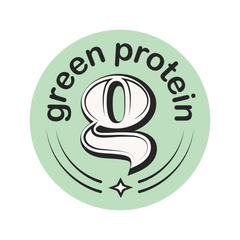
The Science Behind Protein Powder and Muscle Recovery
Whether you're an avid gym-goer or someone just starting their fitness journey, you've likely heard of the beneficial role protein plays in muscle recovery. Protein powders, in particular, have become a go-to supplement for many aiming to enhance their recovery post-workout. But what is the science behind protein powder and muscle recovery? Let's delve deeper into the role of protein in the body and how it aids in the recovery process.
Understanding Protein and Its Role in the Body:
Proteins are essential nutrients made up of smaller units known as amino acids. These amino acids are the building blocks of our muscles, skin, hair, and other tissues. When we consume protein, our bodies break it down into these amino acids, which are then used to build and repair tissues, create enzymes and hormones, and support immune function.
There are 20 different amino acids, nine of which are considered essential because our bodies can't produce them; hence, we must obtain them through our diet. Different protein sources contain different combinations of these amino acids. For example, animal-based proteins, such as whey and casein protein powders, are complete proteins, meaning they contain all nine essential amino acids. Some plant-based proteins, like soy and pea protein, are also complete.
The Muscle Damage and Repair Cycle:
When you engage in strenuous or resistance-based exercises, such as weightlifting or high-intensity interval training (HIIT), it causes micro-tears in your muscle fibers. This damage is a natural part of the exercise process and is what stimulates your body to repair and grow stronger muscles.
However, to efficiently repair and build new muscle, your body needs sufficient amounts of protein. This is where protein powders can come in handy. Consuming a protein-rich supplement after a workout provides your body with a quick and convenient source of the amino acids it needs for muscle protein synthesis - the process by which the body repairs and rebuilds muscle tissue.
How Protein Powder Supports Muscle Recovery:
Protein powders, when consumed after a workout, provide a rapid source of amino acids that can support muscle protein synthesis. One amino acid, in particular, leucine, is known to be a key player in stimulating muscle protein synthesis. Many protein powders, especially those derived from whey, are rich in leucine.
Moreover, protein powders are often rapidly digested and absorbed, allowing amino acids to quickly reach the muscles that need them. This rapid delivery can kick-start the recovery process, especially in the 30-minute to 2-hour window post-workout, often referred to as the "anabolic window." During this period, the body is primed to utilize protein for muscle repair and growth.
However, it's important to note that while protein is essential for muscle recovery, it's just one part of the equation. Carbohydrates also play a crucial role, as they replenish the muscle glycogen (stored glucose) that's used during exercise. Many athletes opt for a post-workout meal or supplement that includes a combination of protein and carbohydrates for this reason.
In conclusion, protein, and by extension protein powder, plays a crucial role in muscle recovery and growth. The amino acids provided by protein are the fundamental building blocks needed to repair exercise-induced muscle damage and stimulate the growth of new muscle tissue. Consuming protein powder post-workout can be an effective way to deliver these important nutrients to your muscles promptly, kick-starting the recovery process.
However, it's essential to remember that protein powders should supplement, not replace, a balanced, nutrient-rich diet. Whole foods should always form the basis of your nutrition, providing a diverse array of nutrients needed for overall health and optimal athletic performance.
Moreover, muscle recovery is a multifaceted process influenced by factors beyond nutrition. Adequate hydration, sufficient sleep, and appropriate rest periods are all vital components of effective recovery strategies.
Whether you're a seasoned athlete or a fitness beginner, understanding the science behind protein and muscle recovery can help you make informed decisions about your post-workout nutrition. Tailoring your approach to meet your individual needs and goals will ensure you get the most from your workouts and support your body in the recovery process. As always, consulting with a healthcare provider or a registered dietitian can provide personalized advice based on your health status and fitness goals. Harness the power of protein wisely, and let science guide your path to improved recovery and enhanced performance.






